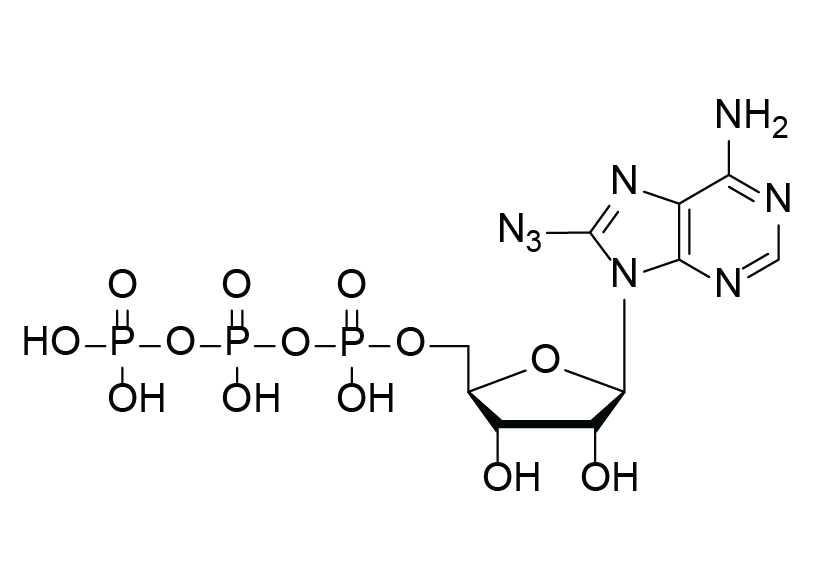8-Azido-ATP
Triphosphate for modifying of 3'END RNA

-
8-Azido-ATP can be incorporated into RNA by 3′-end labeling with Poly(A) Polymerase. Modified mRNA is ready for labeling with alkyne- or DBCO containing reaction partners. The possibility of performing strain-promoted Azide-Alkyne chemistry (SPAAC) enables the copper free click labeling of RNA at the nucleobases. Additionally 8-Azido-ATP can be used to study the ATP binding and hydrolysis in various ABC transporter whether via click chemistry or by exposure to UV light. The last one turns the azide into an a reactive nitrene that binds covalently to the protein it is bond to.
LITERATURE
ATP binding and hydrolysis properties of ABCB10 and their regulation by glutathione, W. Qiu et al., 2015, PLoS One, Vol. 10(6), e0129772.
https://doi.org/10.1371/journal.pone.0129772
Identification of a plant receptor for extracellular ATP, J. Choi et al., 2014, Science, Vol. 343(6168), p. 290-294.
https://doi.org/10.1126/science.343.6168.290
ATP binding to two sites is necessary for dimerization of nucleotide-binding domains of ABC proteins, M. E. Zoghbi et al., 2014, Biochemical and Biophysical Research Communications, Vol. 443(1), p. 97-102.
-
-
Molecular Formula
C10H17N8O13P3
-
Shelf Life
12 months unopened after receipt
-
Storage Conditions
-20 °C, dark, dry
-
Molecular Weight
548.19 g/mol (free acid)
-
Purity
≥ 95% (HPLC)
-
Physical State
colorless to slightly yellow solution (10 mM)
-
CAS Number
53696-59-6
-
Absorption (max)
λmax = 281 nm
-
Ɛ (max)
13.300 cm-1M-1
-
Molecular Formula

